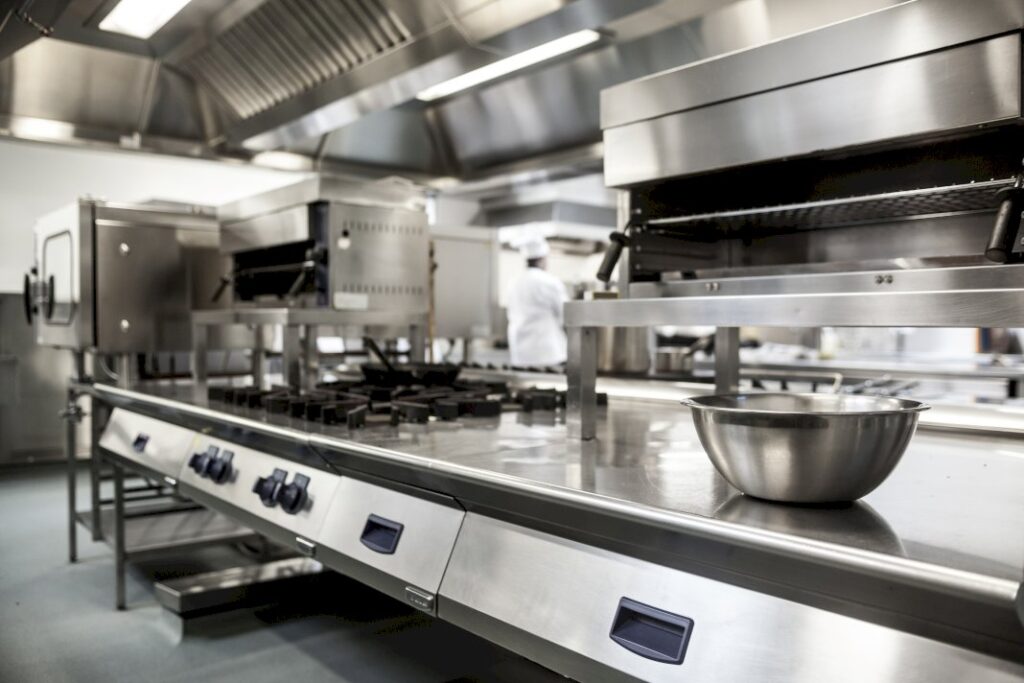- Economically launching a food business requires a frugal mindset and strategic cost management for long-term success.
- Setting up an efficient kitchen involves affordable, quality equipment, inventory optimization, and a practical layout.
- Budget-friendly sourcing entails local ingredient sourcing, supplier negotiation, and robust food waste reduction practices.
- Affordable marketing strategies include leveraging social media, collaborating with local businesses, and DIY marketing materials.
- Community engagement is crucial for building customer loyalty and establishing your business as a community pillar.
The food industry is renowned for its cutthroat nature and daunting obstacles, making it one of the most fiercely competitive ventures. With intense rivalry and razor-thin profit margins, successfully launching a food business demands meticulous planning and budgeting.
However, at the heart of a flourishing enterprise lies the ability to establish and operate the business in an economically efficient manner. By embracing a frugal mindset, aspiring foodpreneurs can unlock their creative and resourceful potential, ensuring long-term sustainability and success.
In this fiercely competitive realm, cost savings play a pivotal role in determining the fate of a food business. Every penny saved can make a significant difference, allowing businesses to reinvest in growth, expand their offerings, and better serve their customers. Moreover, the importance of cost savings extends beyond the bottom line.
By focusing on cost-effective practices, food businesses can offer competitive prices, attract a broader customer base, and foster long-term customer loyalty. This blog post will provide you with a complete guide on how to launch your food business without breaking the bank.
Smart Kitchen Setup
Setting up your kitchen efficiently is essential for the success of your food business. You must ensure the space is optimized for productivity, safety, and functionality. Consider the following tips when designing your kitchen space:
Choosing Affordable Kitchen Equipment
When selecting kitchen equipment, prioritize quality and function over the aesthetic appeal. You don't need the latest and most expensive equipment to produce exceptional food. Instead, invest in high-quality commercial kitchen equipment that not only meets your menu needs but also stands the test of time.
You can ensure seamless operations in your kitchen and minimize the risk of frequent breakdowns or replacements. This not only saves you money in the long run but also guarantees a smooth and efficient culinary experience for both you and your customers.
Streamlining Ingredients and Inventory
The next step to operating a frugal food business is to optimize your inventory. Over-ordering and wasting ingredients can lead to high costs. Analyze your menu and plan your list accordingly. Purchase only the necessary ingredients, and if possible, opt for versatile ingredients that can be used for multiple dishes.
Efficient Kitchen Layout
Optimizing a kitchen layout is crucial to achieving efficient workflow and productivity. Make sure your kitchen layout facilitates team communication and minimizes mistakes. A well-planned kitchen setup can increase speed, quality, and efficiency while reducing risk.

Budget-Friendly Sourcing
To successfully launch your food business cost-effectively, it is crucial to consider budget-friendly sourcing strategies carefully. Here are some tips to help you find cost-effective ingredients and supplies:
Local and Seasonal Ingredient Sourcing
Sourcing ingredients locally and in-season keeps costs low and ensures an excellent taste for your dishes. It's a great way to support the local community and create a story around your business. It's a win-win situation for your business and the community.
Negotiating with Suppliers
Negotiating with suppliers can help you get a better price for your ingredients. You can arrange payment terms, delivery schedules, and minimum order quantities. It's an excellent way to establish long-term relationships and reduce your costs.
Reducing Food Waste
Reducing food waste is one of the most critical aspects of operating a frugal food business. Implement proper portion control, utilize scraps to make broth or compost, and set up a food waste program. Adopting a zero-waste philosophy can save money and be ecologically sound.
Affordable Marketing Strategies
The last pillar of launching economically is to focus on affordable marketing strategies. As a frugal solopreneur, you must use all the tools to reach the community and increase your visibility. The following are some budget-friendly marketing ideas to get you started:
Leveraging Social Media and Online Presence
Social media is the fastest and most cost-effective way to create an online presence. You can showcase your menu, interact with customers, and promote your business on various social media platforms. Additionally, create a website to showcase your menu and business information.
Collaborative Marketing with Local Businesses
Collaborate with other local businesses to reach out to the community. Join neighboring businesses to promote your business through events or bundle promotions. This cost-effective strategy can increase your visibility and attract new customers.
DIY Marketing Materials
Creating your marketing material is an excellent way to save money. Make fliers, menus, and brochures using free editing software and online printing services. You can also partner with local artists to design unique and cost-effective marketing materials.
Engaging with the Community
Engaging with the community is crucial for building a loyal customer base. Participate in local events, offer cooking classes, and sponsor charity events. It's an opportunity to connect with your customers and establish your business as a community pillar.

Launching a food business on a tight budget can be challenging, but it's not impossible. Being a frugal foodpreneur requires constant innovation, adaptability, and hard work.


















